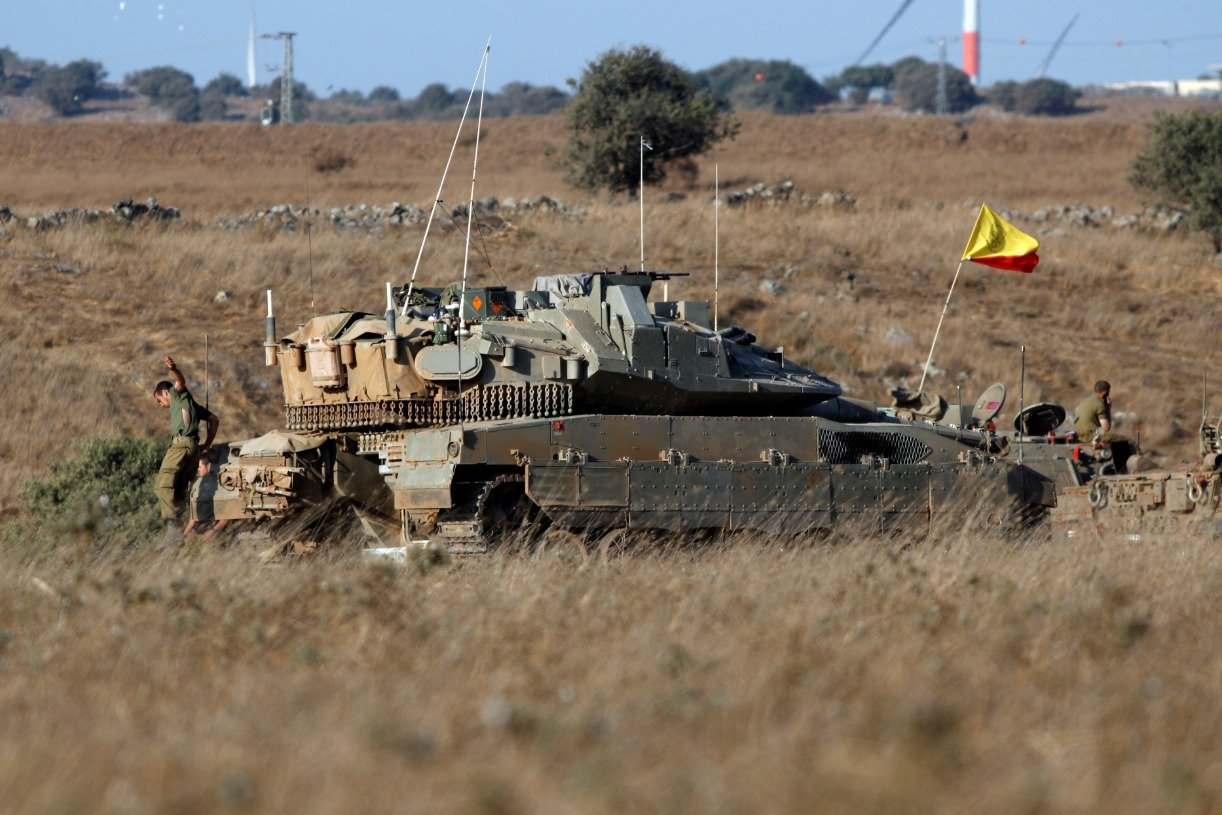
Here’s What You Need to Remember: With Iranian and Hezbollah troops now in Syria, the IDF was already reckoning on the possibility of the Golan Heights becoming yet another war zone on Israel’s frontier. That fact that the Syrian army might join in the digging probably won’t be much of a shock.
First, it was Hamas, and then Hezbollah.
Now, Syria is threatening to undermine Israel with tunnels.
In fact, a Syrian general claims that the Syrian Civil War has turned Syrian soldiers into “experts” at digging holes in the ground.
“I can tell you that as experts on tunnel warfare, we have made large strides during this crisis, throughout the years of the war,” Brigadier-General Lu’ayy Shehadeh told Hezbollah TV network Al-Manar.
In its seventy-five-year history, the Syrian military has rarely had a reputation for being expert in anything. But fighting the Islamic State, which has used underground fortifications extensively, has given the Syrian Arab Army—the official name of the Syrian ground forces—a bloody lesson in subterranean warfare. And not just Syrian government soldiers: American soldiers and U.S.-backed Syrian, Iraqi and Kurdish fighters have had immense difficulty rooting out ISIS from labyrinthine tunnel complexes in Afghanistan, Iraq and Syria. Subterranean passages enable ISIS fighters to avoid air strikes and artillery fire, escape encirclement, and allow them to pop out of the ground to spring ambushes.
Such masterful teachers have passed on their expertise to the Syrian army. “We recently reached a point where our fighters can dig high-quality tunnels in any surroundings, in any conditions, and to any depth,” Shehadeh said in the video, which was translated into English by MEMRI, a pro-Israel research group.
“We have reached a point where the Syrian fighter’s expertise in tunnel warfare is very high, and his technical equipment and gear are very advanced. I won’t expose anything, but all this equipment is made locally, and this is very important. We relied on imported equipment, but the most useful equipment was local.”
Shehadeh, who belongs to the Syrian army’s engineering corps, made clear where the new tunnel warfare expertise would be directed. “Allah willing, we’ve reached a level that will serve us in the main and real conflict. As I’ve told you, we believed right from the start that [the Syrian Civil War] would end. But the conflict [with Israel] is still on. The real war is still on.”
“We are ready to wage tunnel warfare both defensively and offensively – and offensively in particular.”
The Syrian vow comes as the Israeli military itself prepares to combat tunnel warfare. Hamas has dug tunnels to infiltrate into Southern Israel from Gaza, which have been used to stage attacks and kidnap Israeli soldiers. Israel recently discovered several elaborate tunnels dug by Hezbollah into northern Israel, spurring fears that Hezbollah would use tunnels for a surprise attack to seize Israeli towns on the Lebanese border.
If the Syrian army is, in fact, preparing to wage tunnel warfare, then this opens a new front on the Golan Heights, which has quiet since the 1973 Yom Kippur War. I recently had a chance to observe Israel Defense Forces (IDF) exercises in the Golan Heights, which focused on a potential conflict with Hezbollah, which is now operating in Syria. A major part of the maneuvers, conducted by the 188th Armored Brigade, was practicing tactics to destroy Hezbollah tunnels, which the Lebanese group—and Iranian proxy—used with devastating effect to ambush Israeli tanks and troops in the 2006 Israel-Lebanon War.
With Iranian and Hezbollah troops now in Syria, the IDF was already reckoning on the possibility of the Golan Heights becoming yet another war zone on Israel’s frontier. That fact that the Syrian army might join in the digging probably won’t be much of a shock.
 Eurasia Press & News
Eurasia Press & News

